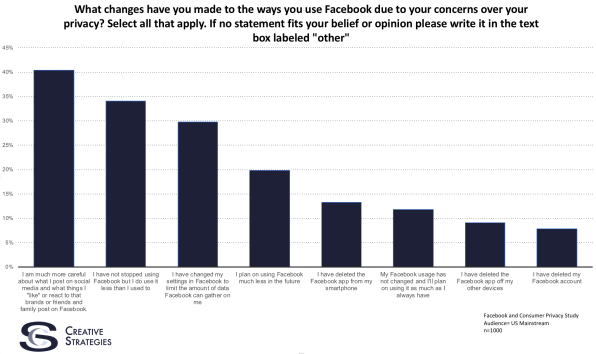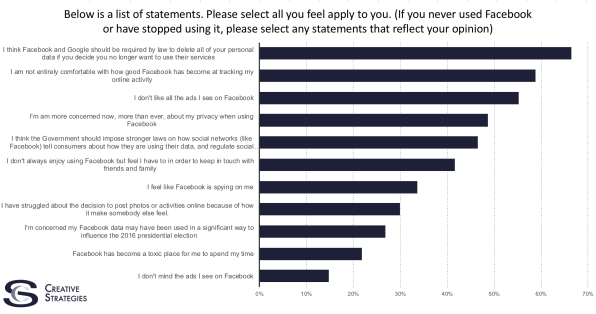You’ve probably heard the saying, “consumers don’t care about privacy,” which I’ve always found to be an odd phrase since it seems like a logical fallacy.
As a part of my day job as an industry analyst, I spend a lot of time with company executives talking through our firm’s research on consumer behavior with technology, which often touches on issues of privacy. It is in these conversations that I frequently hear the adage “consumers don’t care about privacy.” The reasoning behind this phrase is as follows: Because people post pictures of themselves or their family on social media–sometimes doing weird things–they must not care that much about their privacy. But it’s not that simple. After doing years of qualitative and quantitative studies on this subject, I think we need to reframe how we think about consumer privacy.
Privacy Is All About Context
Many consumers say they’re concerned about their privacy, and then post a bunch of personal stuff on Facebook, or Twitter, or Snapchat. But this says more about their feelings concerning social networking services than their overall feelings about privacy.
Consumers’ beliefs and behavior around privacy are largely contextual. In some situations, they care about privacy; in others, not so much. When it comes to things like banking and finances, or medical-related information, consumer behavior will line up with their stated beliefs in caring about privacy. The reality is, social media may not be one of those places.
Our findings suggest that consumers fully understand that the content they post on Facebook is public. They treat Facebook as a public forum. Therefore, the expectation of privacy on Facebook is not as high as it is with their bank, medical institution, or insurance company.
So maybe a narrow version of that phrase, such as “consumers on Facebook don’t care about privacy” may well be true.

Top Lines From The Research
After Facebook’s Cambridge Analytica scandal and Mark Zuckerberg’s recent Congressional hearings, we at Creative Strategies decided it was a good time to conduct a new consumer study. We performed a broader study last year on consumer privacy and security and felt this would be a good way to update our results and glean new insights. We wanted to ask consumers about their use of Facebook and test some new privacy-related theories.
After the responses were all in, some important data points stood out.

Tracking Behavior Outside Facebook
Consumers are becoming more sensitive to companies’ aggressive tracking of their online behavior. That tracking is beginning to affect consumers’ expectation of privacy.
Our research shows that consumers don’t seem to mind seeing ads on Facebook. They even indicated some level of gratitude when they found a new product or service on Facebook that fit their interests. But consumers feel that Facebook crosses the “creepy” line when it targets its ads using personal information it gleaned outside of Facebook. To this point, 58% of consumers in our study said they’re less than comfortable with how good Facebook has become at tracking their general online activity.
It’s here I believe the technology industry needs to start a broader conversation on privacy. The industry may need provide some protections for consumers who do not want their non-public online behavior to be tracked by companies like Facebook and Google. Any regulation of Facebook and companies like it should focus on this. Perhaps some consumer data should be off-limits to companies like Facebook and Google even if that activity happens on their own platforms.
Consumers are becoming more aware of the sophisticated tracking and ad-targeting technology used by Facebook, Google, and others have become. That awareness is raising privacy concerns.
No, people will not leave Facebook in droves. But people may start using Facebook less, as 45% of our study respondents said they were. Or more consumers may change their privacy settings and on-Facebook practices to limit how much information they share. Our survey found that 39% of consumers had already changed their Facebook privacy settings because of privacy concerns.
And the impact on Facebook’s business is likely to be nominal, at least in the near term. Facebook already controls a massive store of user data. But it may call into question the long-term viability of business models that dispense some “free” service for which the consumer pays with their data rather than their dollars.
(30)